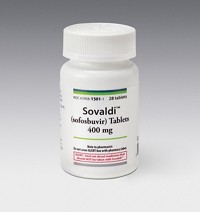Advertisement
Grab your lab coat. Let's get started
Welcome!
Welcome!
Create an account below to get 6 C&EN articles per month, receive newsletters and more - all free.
It seems this is your first time logging in online. Please enter the following information to continue.
As an ACS member you automatically get access to this site. All we need is few more details to create your reading experience.
Not you? Sign in with a different account.
Not you? Sign in with a different account.
ERROR 1
ERROR 1
ERROR 2
ERROR 2
ERROR 2
ERROR 2
ERROR 2
Password and Confirm password must match.
If you have an ACS member number, please enter it here so we can link this account to your membership. (optional)
ERROR 2
ACS values your privacy. By submitting your information, you are gaining access to C&EN and subscribing to our weekly newsletter. We use the information you provide to make your reading experience better, and we will never sell your data to third party members.
Two articles require comment (C&EN, Dec. 5, 2005, pages 43 and 65). While I share the concern of many for the current state of U.S. science education, it should be noted that China and India, each with roughly four times the U.S. population and a fraction of our infrastructure, should be graduating more engineers and scientists as well. Diane Grob Schmidt mentions several worthwhile initiatives in her article, but the single most effective initiative would be a free four-year education for any U.S. citizen studying the physical sciences.
The U.S. is nearly alone in requiring students and their families to pay the $60,000 or so needed to attain a bachelor's degree, which provides the graduate with a murky employment future at best. At the graduate level, receiving a degree in law, medicine, or business is a more secure and lucrative choice than receiving a Ph.D. in the sciences. There are more than enough talented American students to fulfill our science and engineering needs. They are simply responding to our government's indifference to the flow of research and manufacturing jobs overseas by preparing for service-sector employment.
Schmidt's mention of the 110 pending or complete U.S. chemical plant closings points directly to C&EN's interview with Agnes Varis. Varis would do well to reconsider her statement regarding greed and the pharmaceutical industry given that her career and wealth are built on generic pharmaceuticals. Americans pay a high cost for patent medicines because the rest of the world pays less. In effect, the U.S. subsidizes the cost of drug discovery and development for the rest of the world. Unless our government is willing to pressure other nations to pay their fair share of this cost, we will continue to see an erosion of U.S. capability and economic health through the outsourcing of jobs and importing of drugs and other products.
Generic drug companies and those like Varis who broker these transactions are the beneficiaries, and the impact on the cost of discovering new medicines is zero. Varis is ill-informed if she thinks the drugmakers' original mission was social benefit. Those of us who have made a career in the discovery and development of new medicines take pride in the societal benefit our work provides, but we know our mission is and always has been to make a profit. Perhaps she should ask the former employees of those 110 chemical plants how affordable they find her miracles.
Steve J. Hodson Mason, Ohio



Join the conversation
Contact the reporter
Submit a Letter to the Editor for publication
Engage with us on Twitter